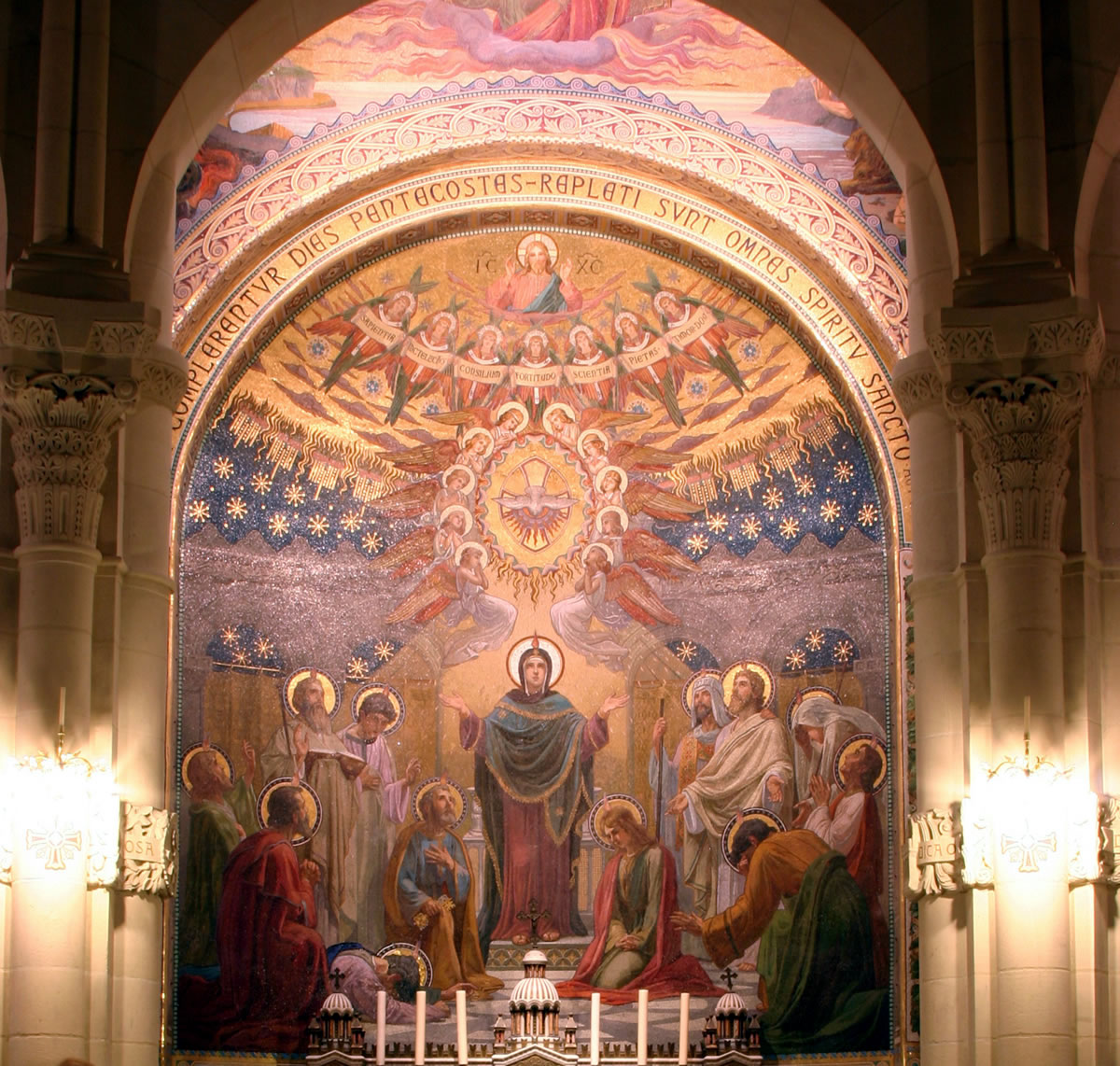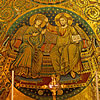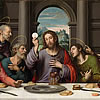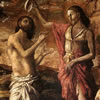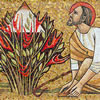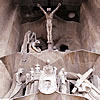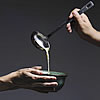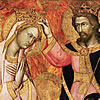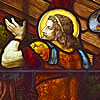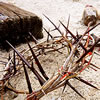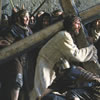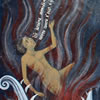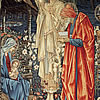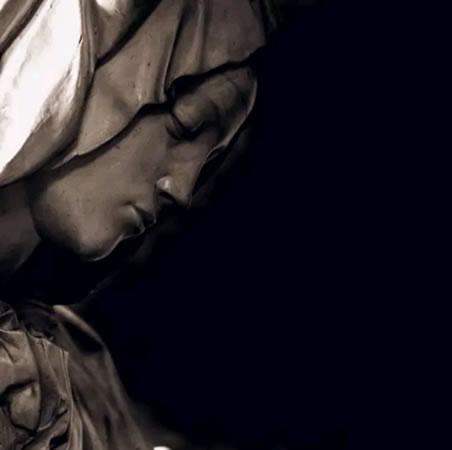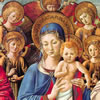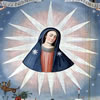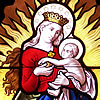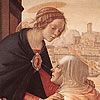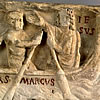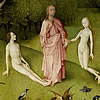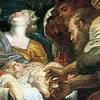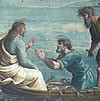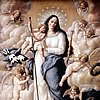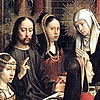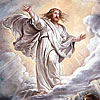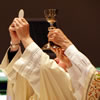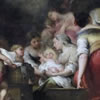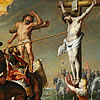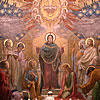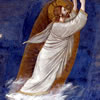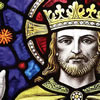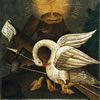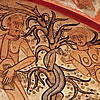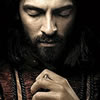Pentecost and the Birth of the Church
In Genesis, the “birth” of Adam is described this way: “then the Lord God formed the man out of the dust of the ground and blew into his nostrils the breath of life, and the man became a living being.”(Genesis 2:7)
From this we understand that there are two components of the human nature: it has a body and a spiritual soul. The body is a material thing that came from the dust of the ground. Symbolically, this indicates the humble beginnings of humanity’s origins – we came from dust. The name Adam indicates this too, because in Hebrew, Adama means ground or earth.
This dust from the earth, however comes to life when God breathes life into it. In the original Hebrew, this is expressed as ruach, which means “wind” or “breath.” In Greek it is translated as pneuma, and in Latin it is spiritus, where we get the English word “spirit.” It is this spirit that gives us life. We are like sails that are nothing but cloth, but when the wind blows, it turn the cloth into a dynamic being that can move entire ships.
Saint Thomas Aquinas liked to explain that everything that is alive has a spirit, but there are different levels of spirits. Stones and rocks, don’t have spirits; they are not alive. Plants have a rudimentary spirit that allows them to grow and face the sun. Animals have a spirit that is capable of acting on instinct and reacting to stimulus.
Humans, however, have a special spirit, which we call a soul. It is capable of intelligence that way no other material living being has. It is in this way we are created in the image of God. (Genesis 1:27)
God created plants and the living things in the water, land, and sea, but we don’t read of him breathing life into them. In this context, the life that God breathed into humanity is his divine life! That means we were meant to share his divine life from the beginning.
Every year, we celebrate Pentecost 50 days after the Resurrection. We celebrate it because it is the birthday of the Church, the Mystical Body of Christ.
When the Holy Spirit came down on Pentecost, “suddenly there came from the sky a noise like a strong driving wind, and it filled the entire house in which they were.”(Acts 2:2) We see this as God breathing his divine life into his Church. Just as the body of Adam was made from the dust of the earth, we make up the Mystical Body of Christ. Just as God breathed his life into Adam, so does God breathe life into the Mystical Body of Christ. The use of spirit and wind and breath shows how the Holy Spirit uses layers of meaning to poetically reveal this wonderful mystery.
If we make up the Mystical Body of Christ and the Holy Spirit is its soul, then we have to think of the Church not only as an institution, but indeed as a living and breathing organism. This is also why we say the Church is Holy, for while the member that make her up are sinners, the Church as a whole cannot be anything but holy because it’s soul is holy.
There is a wonderful pattern that emerges from this. Humans are made of material and a spiritual soul, the Church is made up of humans and a soul that is the Holy Spirit, and the sacraments that the Church administers to aid in our salvation is made of some form and grace. There is always a material component, and a spiritual component. There is something visible and invisible. It suggests that we, who are human are made up of visible and invisible components, require things that are made of visible and invisible components to “live” both physically and spiritually. By this logic, this why we need the Church and her sacraments.
This is an excerpt from the upcoming book Typology for Beginners, from the same author, soon to be released by Kindlings Press.
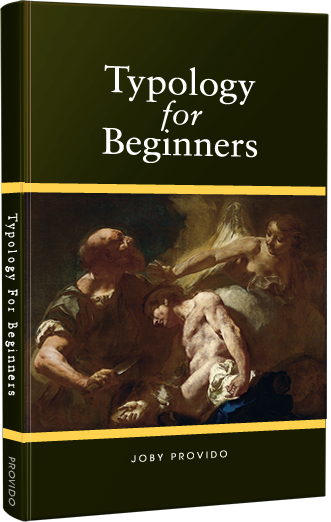

A Sky Full of Stars
Know Our Lady through her Titles in the Litany
The Church helps us understand who Mary is by honoring her with different titles in the Litany of the Blessed Virgin Mary. Unfortunately, over time and difference of culture, we might not grasp what it is the Church is ascribing to her and lose that opportinity to get to know her.
In A Sky Full of Stars, each title of the Litany is explained so we get know Mary more and fall in love with her all over again.
Get your copy now either in Hardbound, Paperback, or Kindle
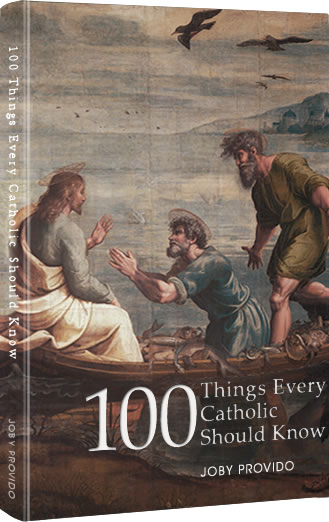
100 Things Every Catholic Should Know
Whether or not you are new to the Catholic Church, or struggling, or lapsed, or dynamically involved, this book will enlighten you with the essentials of the Faith that have been handed down to us by the apostles.
Each of the 100 topics is easy to read and distilled into bite-sized portions. Through cross-referencing, the book also shows how the topics are interrelated. Those who are new to the Faith will find this book an edifying handy reference, and those who have simply forgotten will find it a great review material that might spark a new love for God and religion.
Get your copy now either in Hardbound, Paperback, or Kindle
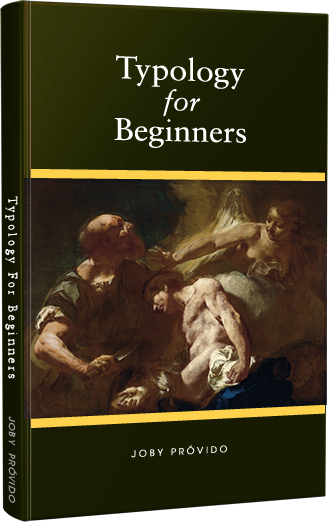
Typology for Beginners
A Catholic Perspective on understanding the New Testament through the Old Testament
First-century Jews converted to Christianity in droves because of the way the New Testament was written to show Jesus was the Messiah promised by the Old Testament. We also learn about how Mary is the New Eve and the Ark of the Covenant in the way the writers portray her.
Through typology, the patterns that connect the Old and New Testaments make the Bible stories more accessible so that one becomes excited to read Sacred Scripture again.
Get your copy now either in Hardbound, Paperback, or Kindle
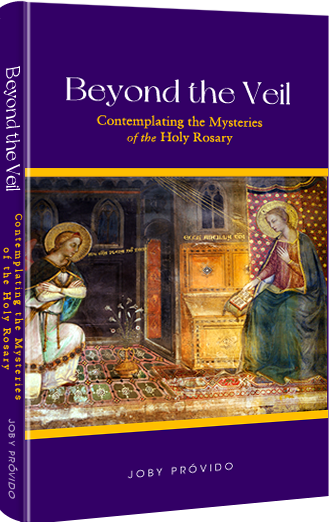
Beyond the Veil
Contemplating the Mysteries of the Holy Rosary
Prayer giants like Pope St. John Paul II, Pope Paul VI, Bl. Archbishop Fulton Sheen, and Bishop Robert Baron advocate that we contemplate on the mysteries of the rosary while we say the vocal prayers. Unfortunately, there are not many books that teach us how to do this. Beyond the Veil comes to the rescue by suggesting seven ways we can pray the rosary the way it was intended.
The larger part of the book offers mental images for each of the mysteries we can use in our contemplation, for how can we imagine the scenes in the rosary if we don't know about them?
Get your copy now either in Hardbound, Paperback, or Kindle


